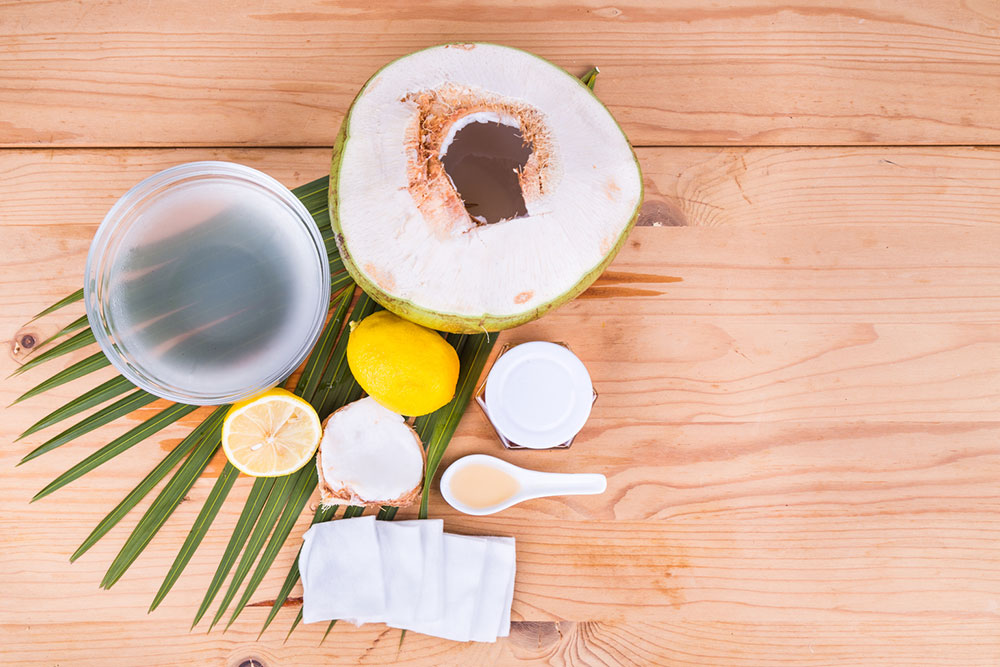Comprehensive Natural Approaches to Managing PCOS Symptoms Effectively
Explore comprehensive natural and holistic methods for managing PCOS symptoms. From diet and exercise to alternative therapies, this guide offers practical strategies to improve hormonal balance and overall health for women with PCOS.

Comprehensive Natural Approaches to Managing PCOS Symptoms Effectively
Polycystic Ovary Syndrome (PCOS) is a prevalent hormonal disorder affecting millions of women worldwide. It involves the enlargement of the ovaries and the formation of small cysts on their surface, leading to a range of symptoms that can significantly impact quality of life. These symptoms include irregular menstrual cycles, excess androgen levels causing unwanted hair growth, severe acne, darkening of the skin, skin tags, hair loss, and fertility challenges. While there is currently no definitive cure for PCOS, a holistic approach centered on lifestyle modifications and natural strategies can effectively control and mitigate symptoms. This comprehensive guide explores practical, natural methods to manage PCOS, emphasizing dietary changes, wellness routines, and alternative therapies to support hormonal balance and overall health.
Understanding PCOS and Its Complex Roots
PCOS is a multifaceted condition with underlying causes that are still being researched. It involves hormonal imbalances including elevated levels of androgens, insulin resistance, inflammation, and genetic predispositions. These interconnected factors complicate the treatment landscape, making personalized approaches essential. The condition's complexity underscores the importance of adopting a holistic perspective that addresses dietary, lifestyle, and environmental factors to effectively manage symptoms.
To improve health outcomes in women with PCOS, natural and holistic methods seek to restore hormonal balance, reduce inflammation, and enhance metabolic function. These strategies not only alleviate symptoms but also promote overall well-being, reduce the risk of associated conditions like diabetes and cardiovascular disease, and improve fertility prospects.
Dietary Modifications to Alleviate PCOS Symptoms
The foundation of successful PCOS management lies in dietary adjustments. The foods consumed influence the severity of symptoms significantly, especially through their effects on insulin sensitivity, inflammation, and hormone regulation. Transitioning to a nutrient-dense, whole-food diet helps reduce inflammatory responses and supports hormonal health.
Focus on Whole Foods: Emphasize unprocessed fruits, vegetables, whole grains, and legumes. These foods are naturally low on the glycemic index, helping to stabilize blood sugar levels and improve insulin response.
Prioritize Anti-Inflammatory Foods: Incorporating olive oil, tomatoes, leafy greens, fatty fish like salmon, walnuts, and berries can reduce chronic inflammation associated with PCOS.
Enhance Iron and Magnesium Intake: Consume iron-rich foods such as spinach, broccoli, and eggs, particularly if menstrual bleeding is heavy. Include magnesium sources like almonds, spinach, and bananas to support hormonal balance and metabolic health.
Increase Fiber-Rich Foods: Lentils, beans, broccoli, and avocados aid digestion, reduce gastrointestinal inflammation, and help regulate blood sugar fluctuations.
Incorporate Probiotics: Fermented foods like yogurt, kefir, sauerkraut, and kimchi foster a healthy gut microbiome, which is crucial for hormone regulation and inflammation control.
Physical Activity and Lifestyle Habits
Regular exercise plays a pivotal role in managing PCOS symptoms by improving insulin sensitivity, reducing inflammation, and supporting hormonal equilibrium. However, the type and intensity of activity matter; gentle exercises are generally recommended to prevent hormonal stress.
Gentle Exercises: Activities such as yoga, Pilates, swimming, walking, and cycling are ideal. These promote relaxation, improve blood flow, and enhance metabolic health without overstressing the body.
Exercise Routine Tips: Aim for at least 150 minutes of moderate exercise weekly, but listen to your body and avoid overtraining, which can elevate cortisol levels and worsen symptoms.
Prioritizing Sleep and Stress Management
Quality sleep and stress reduction are vital for hormonal health. Poor sleep and chronic stress are linked to increased cortisol levels, which can exacerbate PCOS symptoms and insulin resistance.
Sleep Hygiene Strategies: Maintain a consistent sleep schedule, aim for 8-10 hours of restful sleep, and minimize screen exposure before bed. Creating a calming bedtime routine supports better sleep quality.
Stress Reduction Techniques: Practices like mindfulness meditation, deep breathing exercises, and progressive muscle relaxation help lower cortisol levels and improve overall hormonal balance.
Alternative Therapies and Supplements
In addition to lifestyle modifications, several alternative therapies and herbal supplements are believed to support hormonal health in women with PCOS.
Acupuncture: This traditional Chinese therapy may improve ovarian blood flow, reduce cortisol, and enhance insulin sensitivity. While more research is ongoing, some women report symptom relief after regular sessions.
Herbal Adaptogens: Herbs such as maca root, holy basil, licorice root, tribulus terrestris, and chasteberry are known for their hormone-modulating properties. They may help balance cortisol, estrogen, and progesterone levels, supporting reproductive health.
Environmental and Chemical Exposure Reduction
An often-overlooked aspect of managing PCOS involves minimizing exposure to endocrine-disrupting chemicals (EDCs). These substances interfere with hormone function and can aggravate symptoms.
Limit Contact with Harmful Chemicals: Avoid plastics containing BPA and phthalates, opt for glass or stainless steel containers. Choose organic produce to reduce pesticide intake, and select natural or fragrance-free cosmetics and skincare products.
Be Mindful of Household Products: Use natural cleaning agents, and steer clear of chemicals like dioxins and pesticides that interfere with endocrine health.
Conclusion: Embracing a Natural, Holistic Approach for PCOS Management
While PCOS is a complex and chronic condition, a dedicated focus on natural, holistic strategies offers hope and tangible improvements. By adopting a nutritious diet, engaging in appropriate physical activity, managing stress effectively, and minimizing environmental toxins, women can significantly reduce symptoms, improve hormonal balance, and enhance their overall quality of life. Consulting healthcare professionals to personalize these approaches ensures safe and effective management tailored to individual needs.





